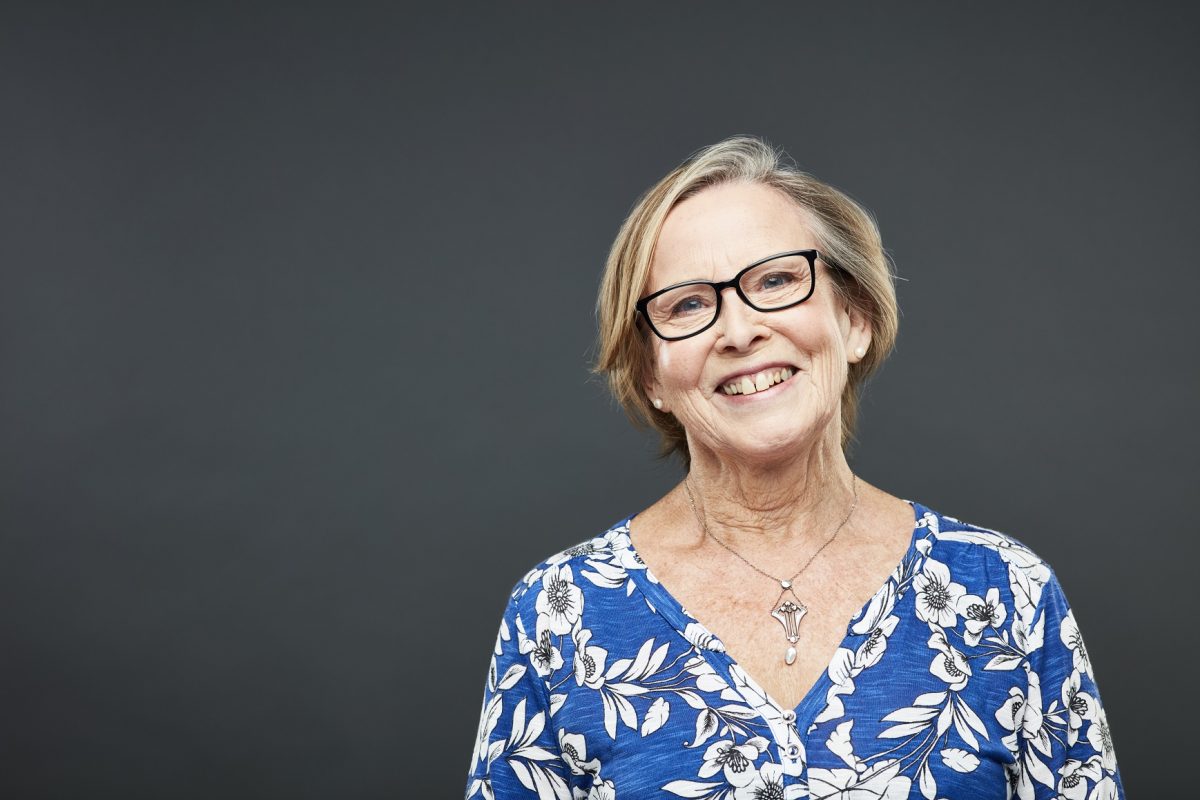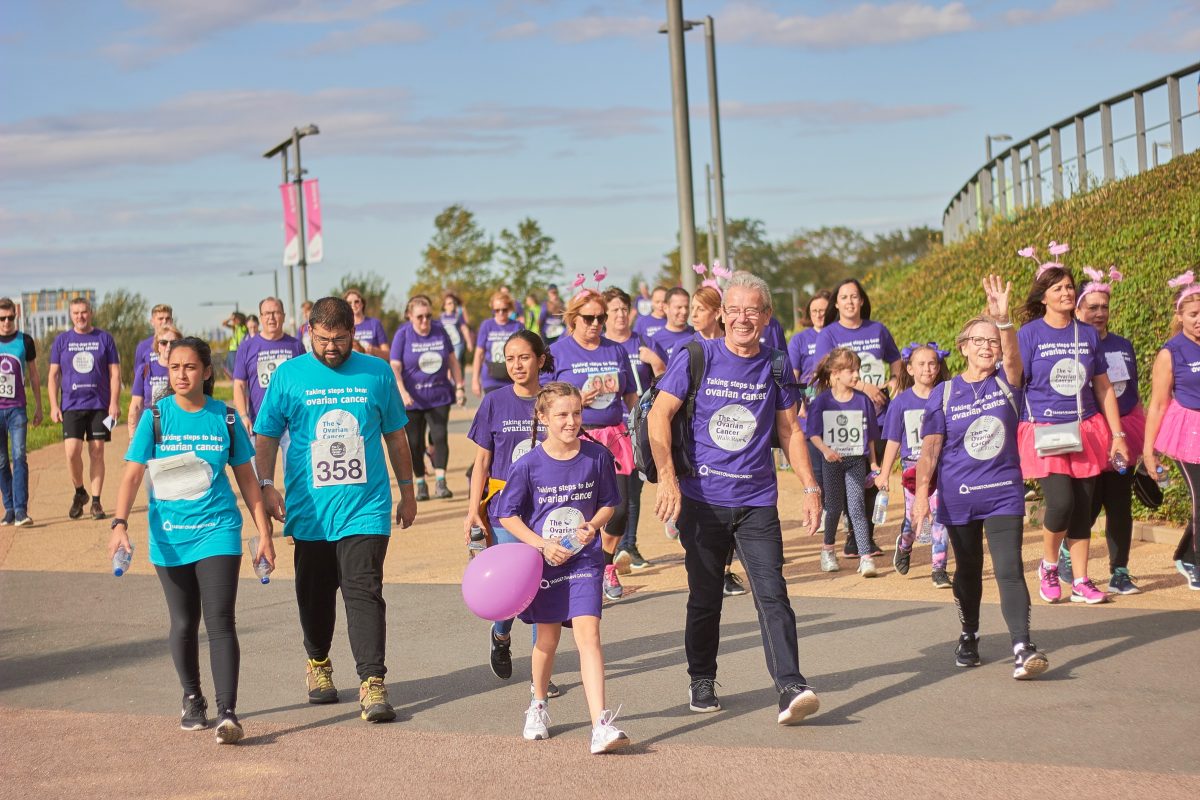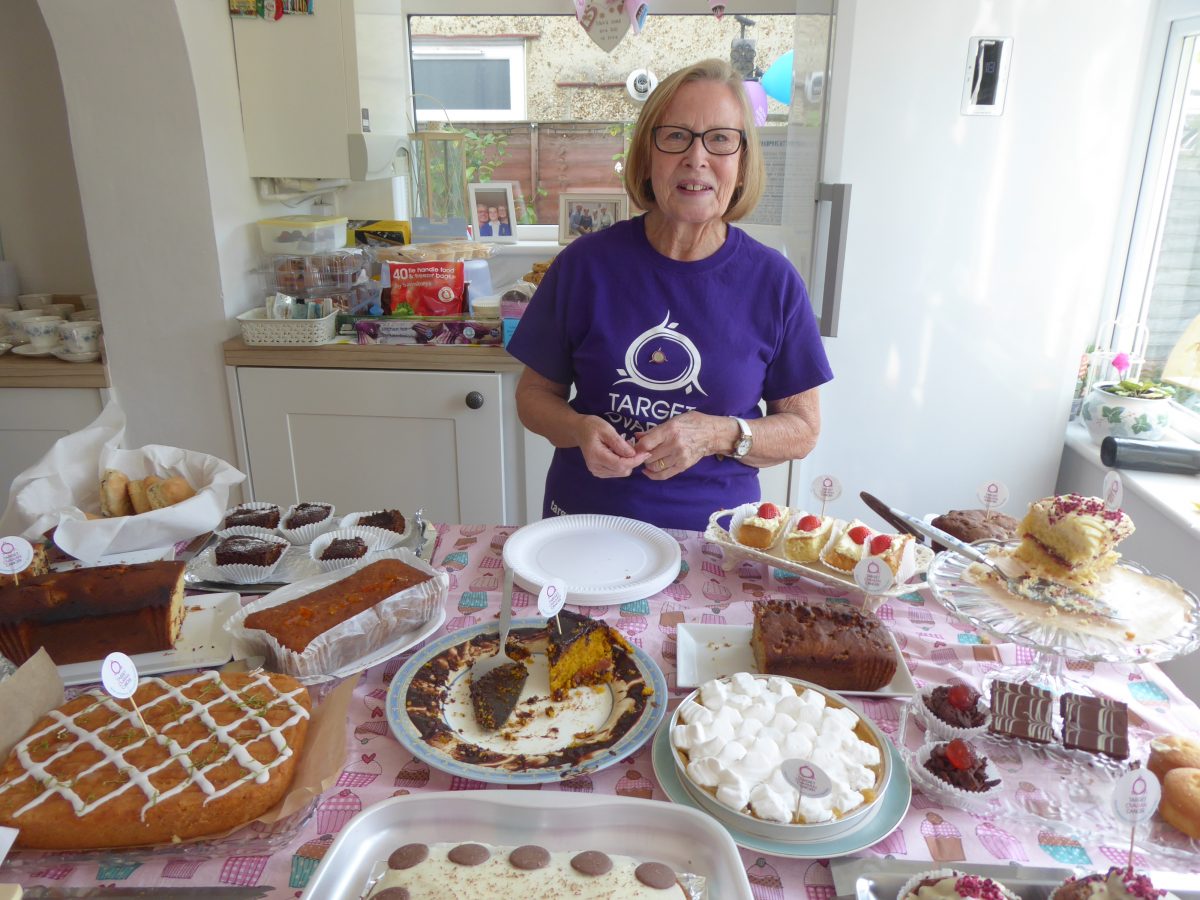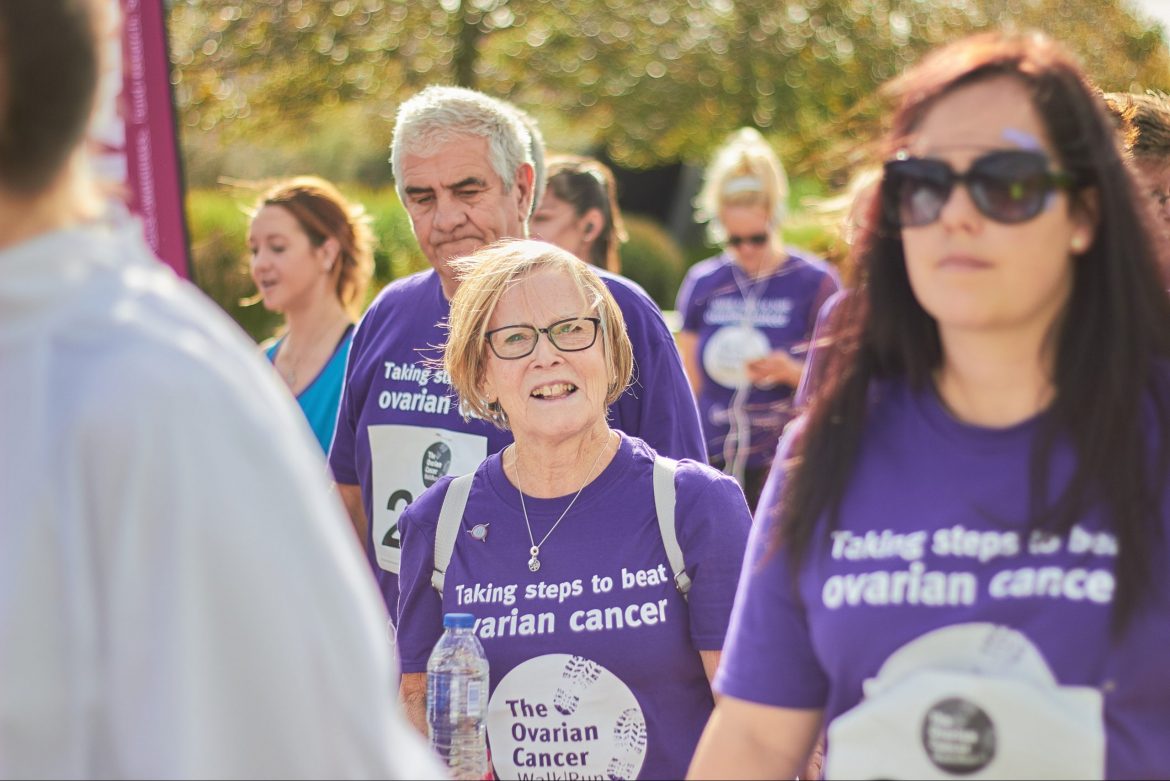In 2014, Pauline Corry, then 67, started to experience severe pain and bloating in her abdomen. For three months she was sent backwards and forwards between two GPs who told her she had a blockage in her bowel, sending her home with little in the way of a solution.
“It got to the point where I looked six months pregnant,” she said. “I wasn’t really eating and I just felt absolutely awful and I was collapsing from the pain.”
It was on April 13, Corry’s 68th birthday, that her husband insisted that she go to A&E, where doctors and nurses found that she had two tumours in her ovaries. They were in disbelief that Corry had been left to suffer in this way for months.

Dr Victoria Barber, a GP in Northamptonshire and advocate for early diagnosis of ovarian cancer, said: “It’s vital that GPs are knowledgeable on ovarian cancer and know how to advise patients who have concerns. Target Ovarian Cancer has a GP education programme that can help you do this.”
In the UK, March is Ovarian Cancer Awareness Month and Target Ovarian Cancer (TOV) are working hard to push for more recognition and education on the disease. Their chief executive Annwen Jones OBE, said: “Knowing the symptoms is crucial for everyone. We need to make sustained and large-scale government-backed symptoms campaigns a reality.”
Ovarian cancer is one of the biggest killers of women in the UK because, unlike cervical, bowel and breast cancers, there is still no reliable, effective screening method to diagnose it.
Another reason is that the disease has similar symptoms to those of other, less serious, conditions such as irritable bowel syndrome, ovarian cysts and polycystic ovary syndrome. According to TOV, almost 45 per cent of women must wait three months to get a correct diagnosis.
When Corry finally got a diagnosis, she was referred to the Royal Marsden Hospital (RM) in Chelsea and in May, she had surgery to remove the tumours. The next step was chemotherapy.
“Following chemo I had to have transfusions because I became anaemic. I had to stop treatment for a while because my veins just couldn’t take the needles anymore,” she said.
Unfortunately, Corry had to have a stoma fitted because one of the tumours had wrapped around her bowel. Just over a year later, the doctors felt she was well enough to have a reversal and she had to adapt to her body becoming ‘normal’ again.
Despite all of this, she considers herself to be one of the lucky ones.
On average there are 4000 deaths from ovarian cancer in the UK each year. This is an average of 11 women dying every day. Research carried out by the National Cancer Registration and Analysis Service suggested that if more women were diagnosed at an earlier stage, 9 in 10 women would survive it.
Corry strongly believes that these figures can change. She said: “I can’t push it enough that we need to raise awareness and get more GPs trained to pick it up quickly.
“You might feel you’re being a nuisance, but that’s what you’ve got to be. You’ve got to just keep at them every day, every week, every month unfortunately for some of us. Don’t hold back.”
From her experience and from speaking with health professionals, Corry knows that a CA-125 blood test is the first thing to be done when somebody has got all the typical symptoms. It is a simple blood test and results come back quickly.
“I presented with the symptoms for three months and was just fobbed off,” she said. “I want to try and stop ladies being treated in that way and get them on the pathway to early diagnosis.”
In 2017 she became acquainted with the team at Target Ovarian Cancer after attending one of their walks in Olympic Park with her husband and granddaughter.

“Annwen Jones, their chief executive officer, came up and greeted us and made us so welcome. From that time on, I thought this is a way I can give something back to thank them for the support that I’d had through my cancer journey and start to help other ladies that were going through it too,” she said.
Target has a community chat line where women and their families can go for help and advice. They can talk to experts, healthcare professionals, and even talk to others going through similar experiences to get support.
On Saturday, Corry raised £700 for Target Ovarian Cancer at a coffee morning which will go towards research and supporting the nurses at Target.
Jones said: “Progress is possible. If we do this, fewer people will be diagnosed late, fewer will need invasive treatment, and ultimately, fewer will die needlessly from ovarian cancer.”
Behind every statistic there is a mother, a daughter, a sister, a friend. Knowing the symptoms could save your life or someone else’s.

What are the symptoms?
According to Cancer Research UK the early signs of ovarian cancer are:
- feeling full quickly and/or loss of appetite
- pelvic or abdominal pain (tummy or below) that doesn’t go away
- persistent bloating
- needing to wee more often or more urgently than usual
Other symptoms can include:
- unexplained tiredness
- unexplained weight loss
- changes in your bowel habit or symptoms of irritable bowel syndrome, especially if this starts after the age of 50
- post-menopausal bleeding (always get this checked at the GP)
Ovarian cancer is often described as a ‘silent killer’, but this is not true. Women in the early stages do display symptoms but they are often ignored. Keeping a symptom journal may help to record symptoms more accurately to avoid misdiagnosis.
The National Institute for Healthcare Excellence recommends that if you have the above symptoms 12 or more times a month, your GP should arrange tests, especially if you are over 50.
More help and information can be found on the NHS website or through Macmillan.





